
Wingohocking Creek
Water
History
Arts Activation
Transformation
Using the power of poetry, the Wingo-WHAT? initiative intends to create a hyper-local healing space for individuals directly impacted by infrastructure-related flooding in Germantown. The artistic intervention equips local residents with flooding preparedness knowledge — all through shared experiences and collective storytelling.
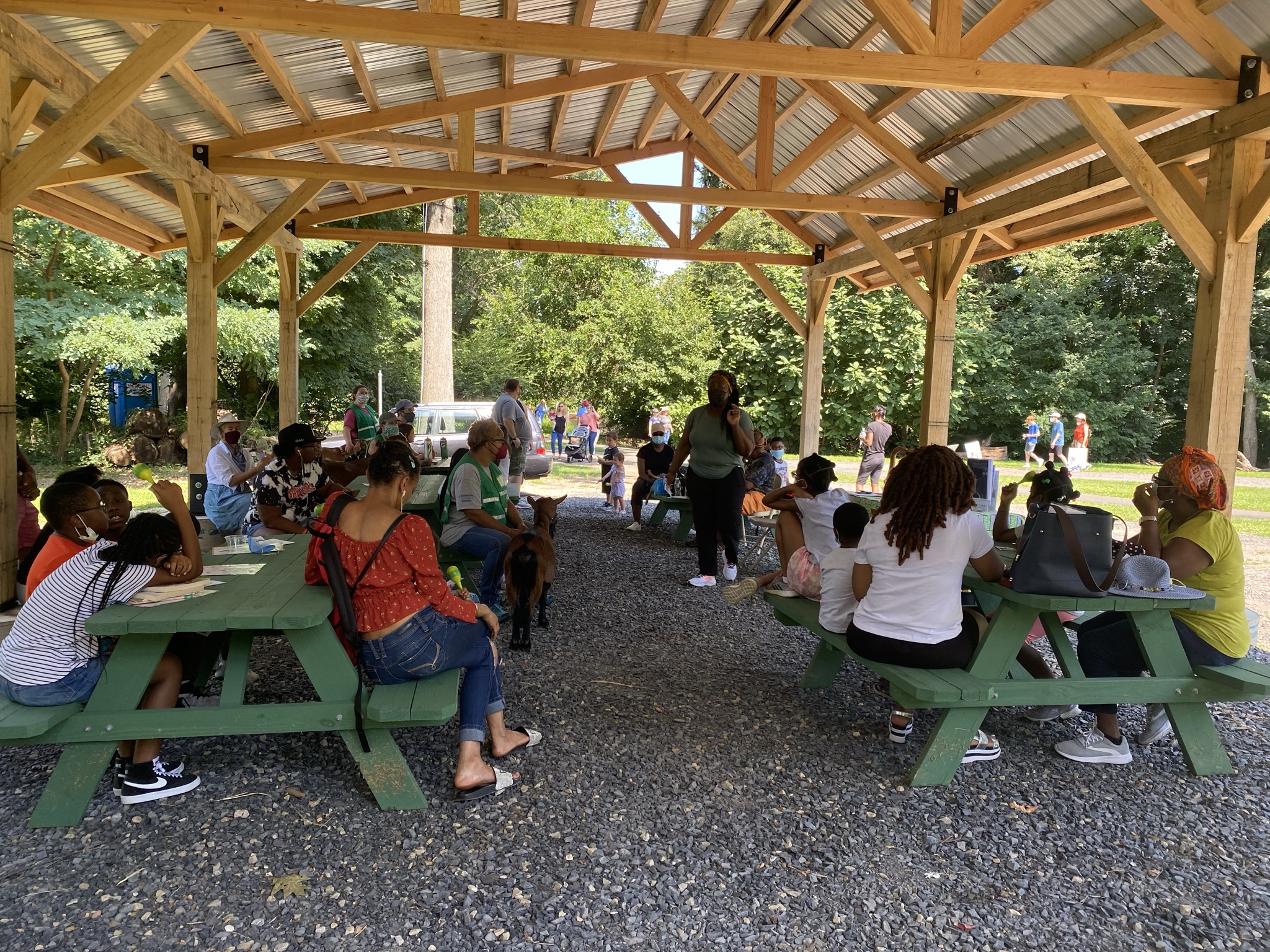
About the Project
Made possible through a Water, Arts, and Culture Accelerator grant from the U.S. Water Alliance, “Wingo-WHAT?” kicked off last summer with a series of community-based poetry workshops around Germantown. During the events, 2020-2021 Philadelphia Poet Laureate Trapeta B. Mayson guided individuals as they composed verses about their experiences with flooding, community transformation, and first memories of water.
Today, this collection of verses have been woven into a larger culminating project. Consciously placed in flood-prone locations around Germantown, poems from the workshops have been lifted from the pages and placed on sidewalks, in the form art installations using decals and words stenciled with water-activated paint (so words will appear when it rains). The stencils were created with artist Julia Terry.
Germantown & Flooding
Wingohocking Creek’s history still affects flooding issues in Germantown today.
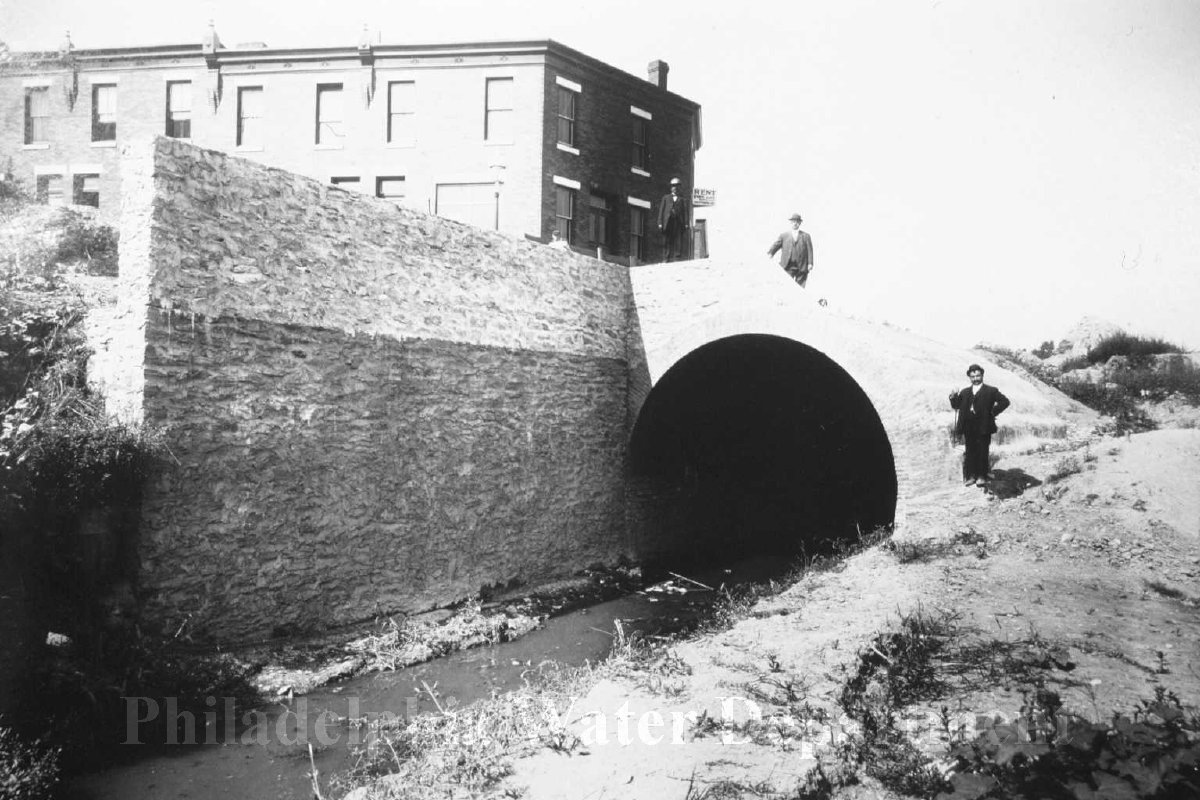
History
As Philadelphia grew during the 18th and 19th centuries, waterways across the city were used to dispose of household and industrial waste. Polluted creeks and streams posed public health hazards, so the City enclosed many of these polluted streams, converting them into sewer pipes.
One of these streams was Wingohocking Creek, which flowed from Mount Airy, through Germantown, and emptied into the Frankford Creek in Juniata Park – but today, the creek only exists above ground for a few hundred feet, in Awbury Arboretum.
Learn more about how these creeks became sewers →
The Present and Future Problem
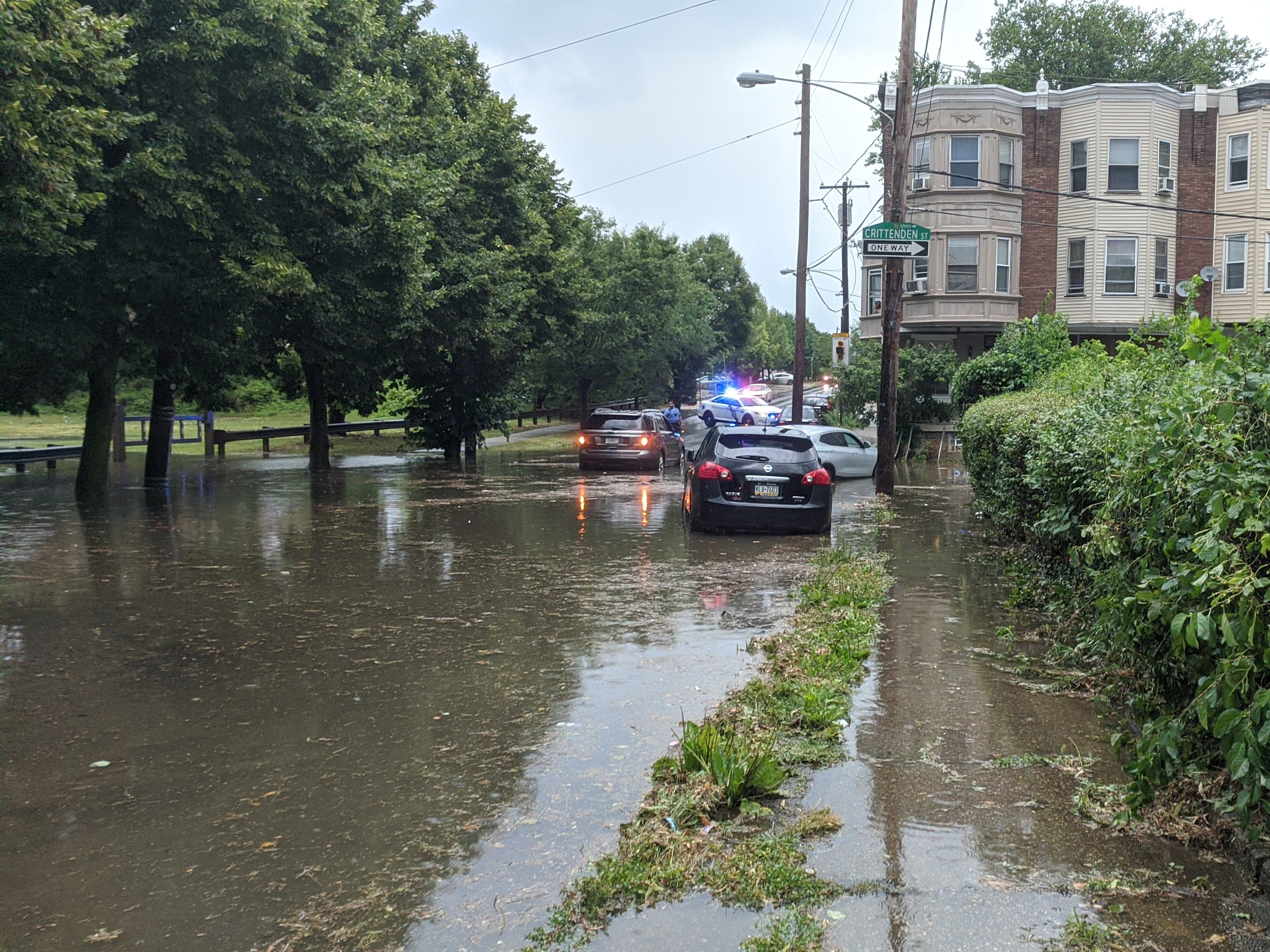
The type of flooding experienced in Germantown, as a result of sewers overwhelmed by abundant stormwater runoff during heavy rainstorms, is classified as infrastructure flooding or urban flash flooding by the City.
As temperatures rise due to climate change, the atmosphere will retain more moisture, leading to more intense rainfall. In Philadelphia, this will be experienced as an increase in the most intense storms that we see, which could lead to more destructive flooding. A number of City agencies are working to address flooding challenges, including PWD’s Climate Change Adaptation Program, the Office of Sustainability, Office of Emergency Management, Philadelphia City Planning Commission, among many others.
Learn more about the City of Philadelphia Flood Management program →
What are we doing about it?
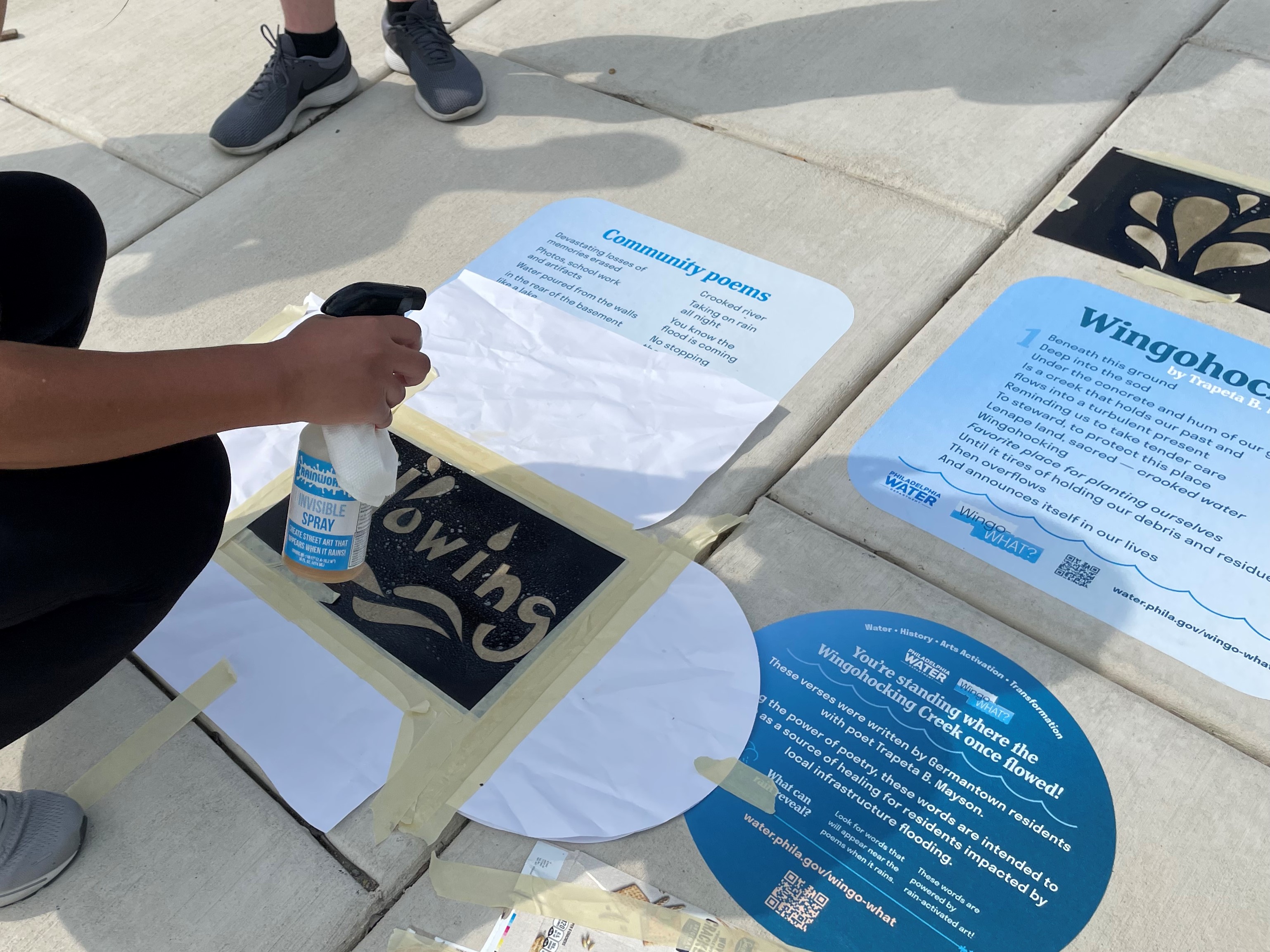
In 2019, PWD studied a variety of possible infrastructure investments designed to reduce the risk and impact of flooding and combined sewer overflows in the Wingohocking and Tacony-Frankford watersheds, which includes the area of Germantown that the Wingo-WHAT? project focused on. They considered approaches using traditional “gray” infrastructure (like large stormwater tunnels and below-ground tanks), non-traditional “green” infrastructure (such as large rain gardens), and combining both.
The study found that a deep tunnel to store and transport stormwater would be likely to reduce how often, how long, and how badly basements and streets in these neighborhoods would experience flooding. PWD is now exploring this option in more detail, developing plans, analyzing the technical data, and talking with the community, and has applied for a grant from the Federal Emergency Management Agency (FEMA)’s Building Resilient Infrastructure and Communities (BRIC) program to help pay for a portion of these additional studies.
Community Poems
Wingohocking
1.
Beneath this ground
Deep into the sod
Under the concrete and hum of our great city
Is a creek that holds our past and
flows into a turbulent present
Reminding us to take tender care
To steward, to protect this place
Lenape land, sacred— crooked water
Wingohocking
Favorite place for planting ourselves
Until it tires of holding our debris and residue
Then overflows
And announces itself in our lives
2.
Under the suck of urban sprawl and splendor
Is a stream that joins another to meet another
To empty itself into the Delaware
Wingohocking
Captured and covered water
Locked into this town’s history
Germantown’s tributary
We know your might
50 years of constructing to shield you
From the city’s bustling scape
And you seep back into our lives
A quiet flow or rushing uprising
You and us now reckoning
3.
In our town you’ve made yourself known
Wingohocking
Your arteries of pipes and engineering
underground conduit
Carrying off leavings and waste
Crooked water
Still or rising
Flooding or hushed
Indelible marker on our lives
Photos and memories and precious things
Taken and carried in your rushing flow
Upended and uprooted
And we still stand
And we two—still here
— Trapeta B. Mayson
2020-2021 Philadelphia Poet Laureate
Photos from our Wingo-WHAT?! Celebration on June 4, 2022 at Maplewood Mall. We revealed sidewalk decals and rain-activated art featuring community members’ poems. The afternoon was full of poetry readings, live music, and flooding resources.
Flooding Resources
Share this info with your neighbors
PWD and other City agencies are collaborating to address flooding issues through public information, mapping and regulations, flood damage reduction, and flood preparedness.
For more information on these resources, visit:
Partners
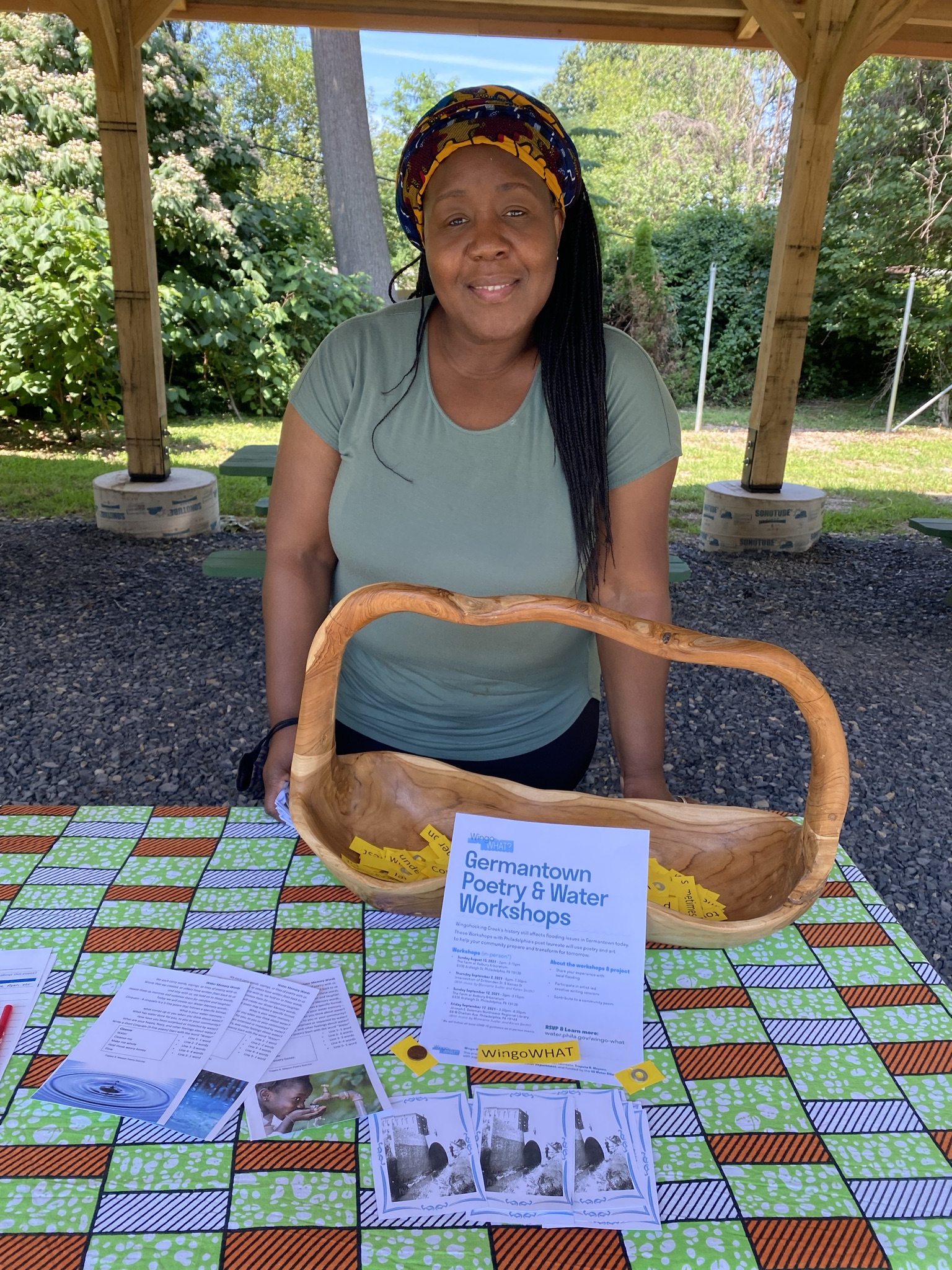
Trapeta B. Mayson
Trapeta B. Mayson is the city of Philadelphia 2020-2021 Poet Laureate. She reads her poetry widely and works extensively facilitating poetry and creative writing workshops. Her work sheds light on and honors the immigrant experience as well as amplifies the stories of everyday people. Mayson is a member of the Green Street Artists Cooperative, a multicultural artistic community in Germantown, and served as the executive director of Historic Germantown from 2014 – 2018.
She is a recipient of a Pew Fellowship in Literature, Leeway Transformation Award, Leeway Art and Change Grant and Pennsylvania Council on the Arts Grants. Her work was also nominated for a 2016 Pushcart Prize. She is a Cave Canem and Callaloo Fellow and a 2019 Aspen Words Emerging Writer’s Fellow with the Aspen Institute.
Trapeta is a native of Liberia. Currently residing in Philadelphia, she is a graduate of Temple University, Bryn Mawr Graduate School of Social Work and Social Research and Villanova University School of Business. Currently working in the social services field, she is also a member of several local organizations where she uses the arts to mobilize, build community and create change.
Germantown Community Flood Risk Management Task Force
In 2020, PWD established the Germantown Community Flood Risk Management Task Force – an appendage of the City of Philadelphia’s Flood Risk Management Task Force (FRMTF). The community-based task force, composed of local Germantown stakeholders and City representatives, strives to mitigate urban flooding in Germantown through the development and distribution of resources for residents.
Members of the Germantown Community Flood Risk Management Task Force participated in the artist selection process and their input informed core elements of the Wingo-WHAT? initiative.
PWD Public Affairs
The Philadelphia Water Department (PWD) Public Affairs Division specializes in public engagement and communications around our stormwater, wastewater, and drinking water services.
USWA Arts Accelerator
This project was made possible by the US Water Alliance’s Water, Arts, and Culture Accelerator. As a pilot member of this initiative, PWD was tasked with addressing a climate-related water challenge through the integration of arts and culture.


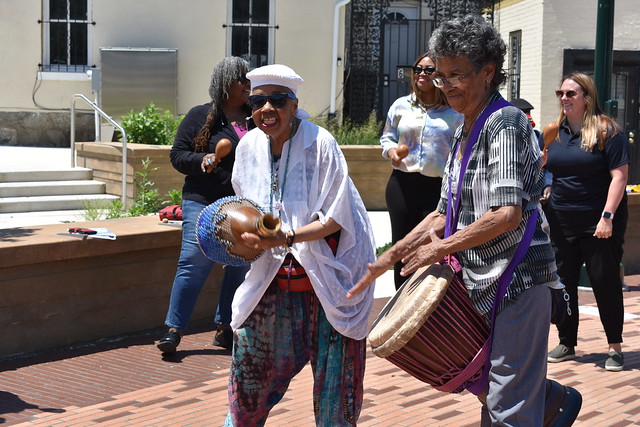

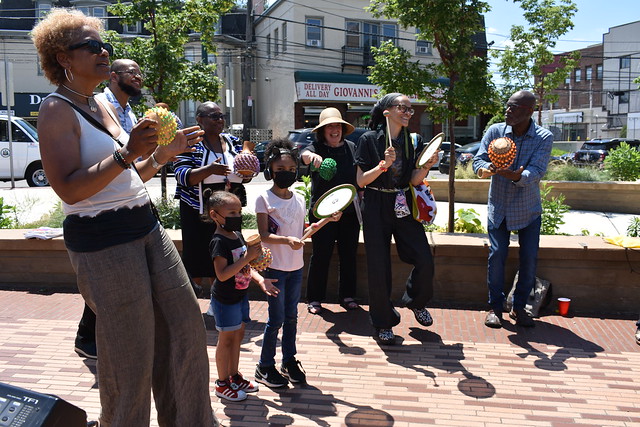

































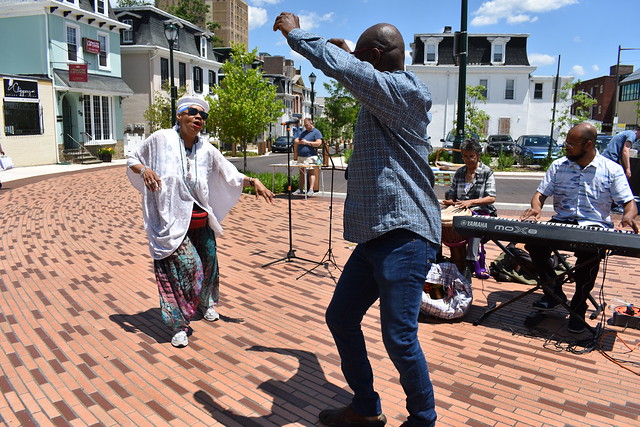






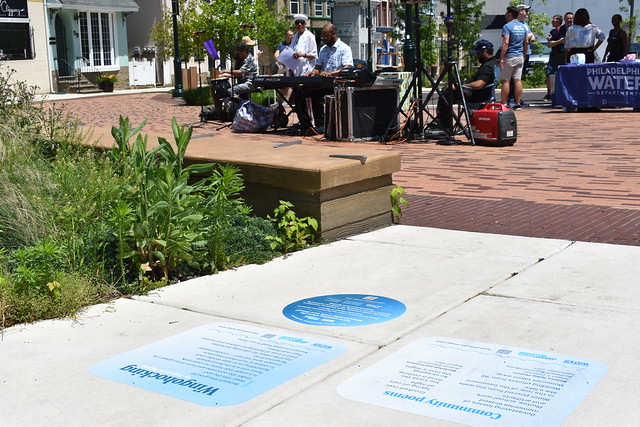


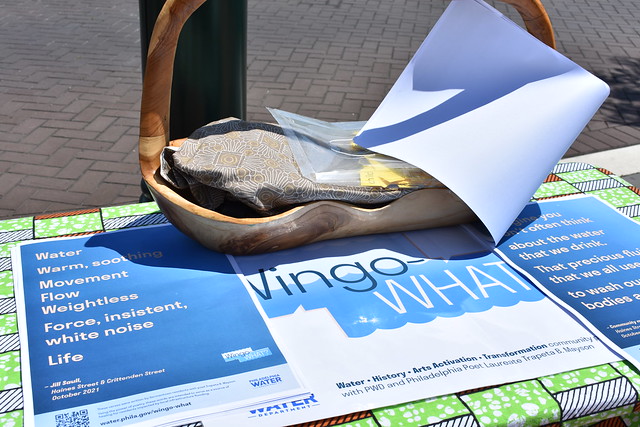






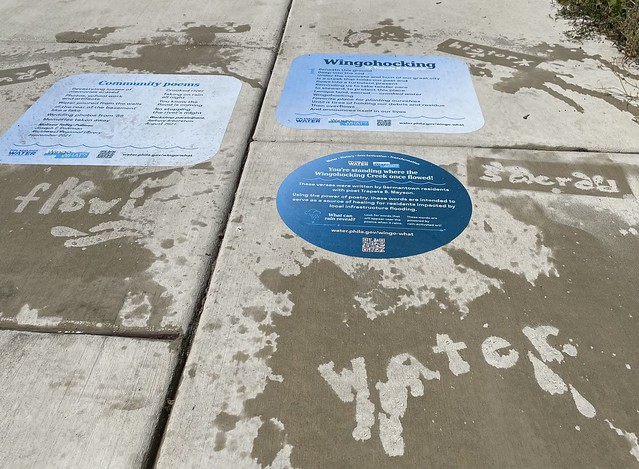













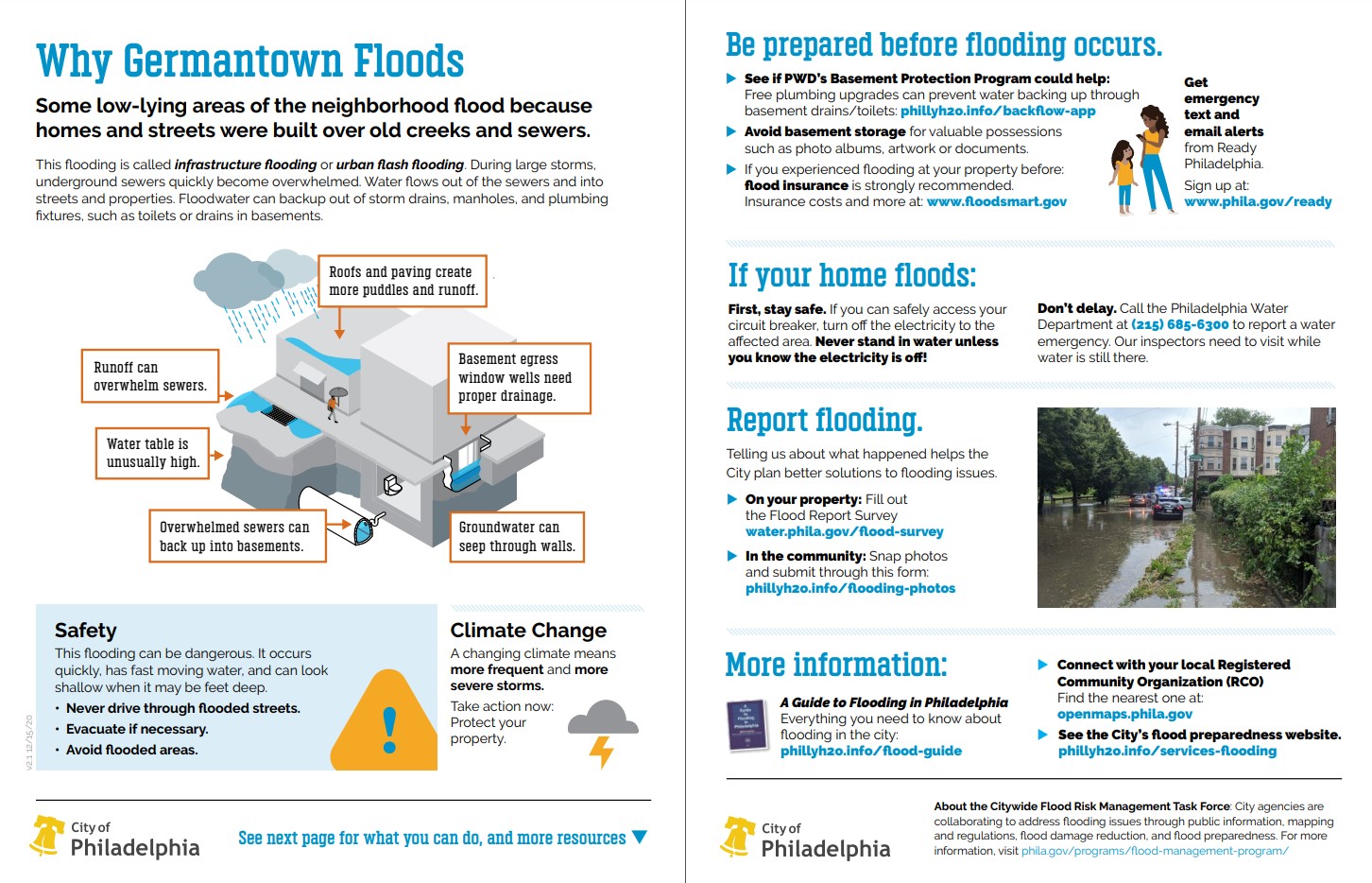 Download & Share
Download & Share